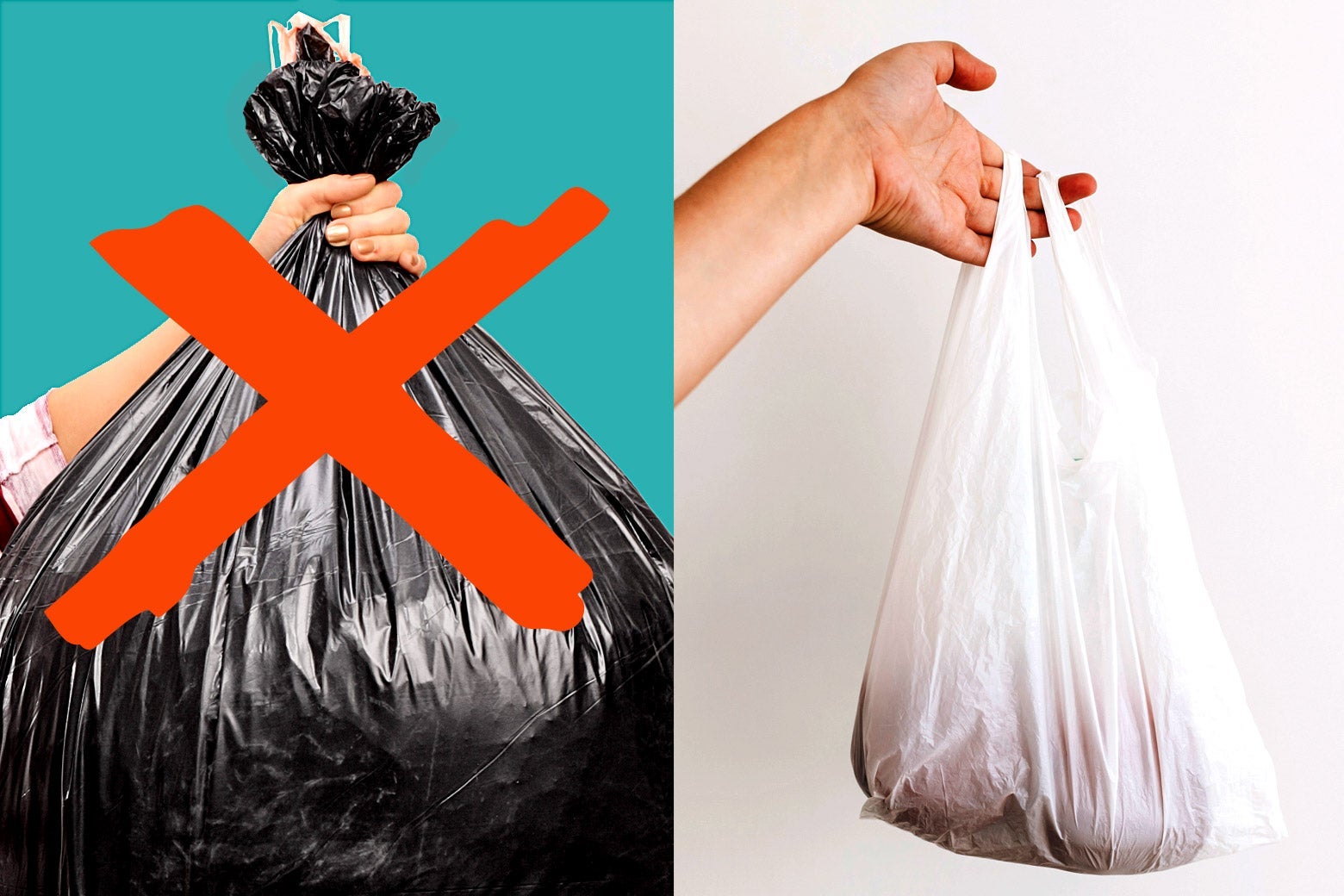This homebound year has led to a boom in interior decorating, thanks to the extraordinary amount of time we’ve all had to contemplate, scrutinize, and loathe our immediate surroundings.
For me, this energy went right in the trash. I mean literally. I’m changing the way I throw things out. I’m using a smaller garbage bag.
The problem, speaking as someone who has spent the pandemic sharing a kitchen with one person or no one at all, is that it takes a small household a long time to fill up a family-size garbage can. Even when you’re cooking three meals a day. Some people, grotesquely, think of the excess capacity of a 20-gallon trash bin as an asset in household garbage planning. “I can take out the trash less often,” they say, or, “It takes me a week to fill up this bad boy.”
What they’re really saying is: I like to keep rotting food scraps in the place I cook and eat for as long as possible.
No, thanks. Previously, I just lugged a quarter-full, 13-gallon trash bag outside every three days. But lugged isn’t the right word. It usually weighed no more than a pound or 2. That’s the easy feeling of taking out the trash on an appropriate schedule. (And yes, I know some people solve this problem by composting, but I’m taking things one step at a time.)
The downside was churning through big plastic bags. Plus, with so much bag left to fill, it was easy to become complacent and miss a trash day—or even two—with unpleasant consequences. So my new policy is very simple. I put my trash in a small plastic bag on a hook. Sometimes I take it outside to the buildingwide can in the evening, sometimes the next day. Instead of buying special-purpose garbage bags, I work through my eternal stock of throwaway plastic bags.
This approach used to be normal. Backyard or basement incinerators, which replaced the gutter as the preeminent site for household trash disposal around the turn of the 20th century, left little reason to keep trash sitting around the kitchen. Early laws requiring exterior, household garbage cans for municipal pickup advertised them as a place for “daily accumulations” of kitchen trash. Over the course of the 20th century, “daily” became “weekly,” thanks to the decline of domestic workers, the rise of plastics (as in garbage bags) and the growing size of American houses. We weren’t always a people who chose to live with our trash for days on end.
Working with a family-size trash can is one of a handful of mismatches inherent to being a childless American in a country built for the cultural cachet and purchasing power of the nuclear family. You’re already cutting all your recipes in half. You’re driving a car with five seats, a design so much the default we rarely consider its wasted space, gas, and materials. You’re throwing money down the drain if you’re not on a family phone plan or splitting a cable login five ways. The best example of a family-size household appliance is the dishwasher, which takes me so long to fill I run it half-empty or, feeling guilty about that, don’t use it at all.
But the most dramatic expression of these mismatches is the housing stock itself. Two-parent families make up just 1 in 5 American households and are outnumbered by single adults, but almost 9 in 10 housing units feature two or more bedrooms, mostly in the form of single-family homes. There are more than twice as many two-bedroom units as studios and one-bedroom units combined. As a result, many single Americans—whether they are high school dropouts or retirees—struggle to find apartments that are the right size. An increasing number of young people live with their parents until they are 30; most others take on roommates, often in violation of city codes. The waist-high kitchen trash can, in other words, is a symbol of how our material environment has failed to adapt to changing patterns of living.
Fixing the housing stock is, unfortunately, not something I’ve had time for this year. But deciding I’m not going to keep 13 gallons of garbage in my kitchen for days at a time? That I can do.
